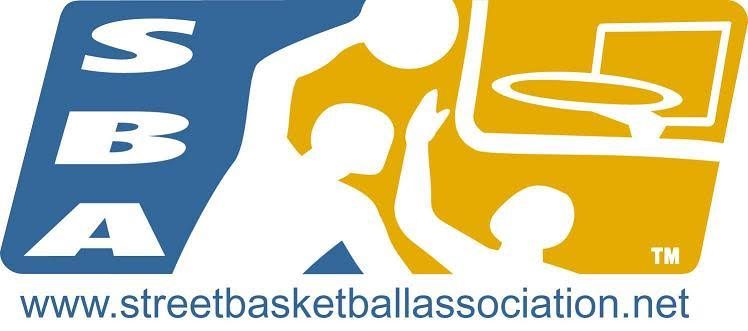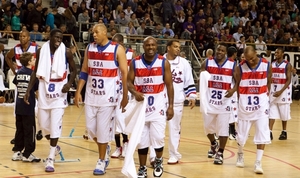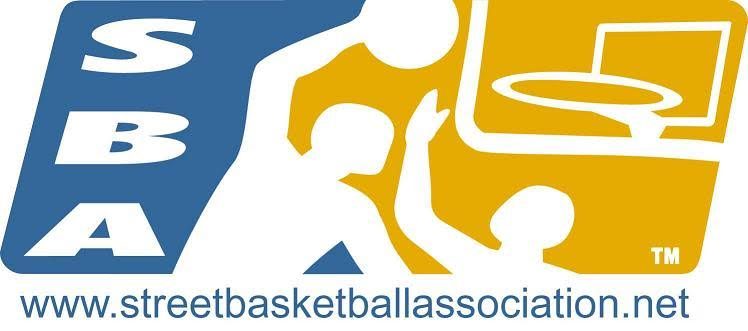So, quite a few people responded to my recent column about the players breaking away from the NBA and forming their own league. Among them was someone who already has a league in place for the players to join. Matt Rosner, Director of Basketball for the Street Basketball Association, believes he has the answer to the players’ desire to create leverage in their collective bargaining talks with the owners. And it doesn’t involved signing with teams in far-flung places across the globe. “It’s a structured, organized, safe, fan-friendly environment to play your games in,” Rosner said on the phone recently. “This is a way to rep your city, make some money and show how you guys can bring in all kinds of revenue streams.” The SBA has teams in 13 cities, including some of the biggest NBA markets — New York, Los Angeles, Chicago, Boston and Washington, D.C. Just as with overseas arrangements, insurance issues have to be worked out. But Rosner said his organization is actively recruiting NBA players to join his streetball movement, and he fully recognizes that it would be a temporary but potentially rewarding arrangement for all parties involved. A couple of SBA All-Stars were instrumental in recruiting Kevin Durant to appear in the pickup game at New York City’s Rucker Park, which he turned into a YouTube sensation by pouring in 66 points. It’s this kind of grassroots, viral phenomenon that Rosner believes would make appearances by other NBA All-Stars so attractive. And unlike a league that would start from scratch and require significant investment that would be squandered once the players returned to the NBA after the lockout, the SBA is positioned to take short-term advantage of the players’ availability before returning to business as usual once the NBA resumes. The players, in turn, would be able to use the brief experience to add another permanent marketing platform and revenue stream to their portfolios. For example, a mainstream star like Dwyane Wade could adopt a streetball name (oh, let’s call him Flash), throw up some YouTube highlights in streetball events here and there, and create sort of a streetball alter-ego that he could continue to promote and benefit from after the lockout ended. “The bottom line is, these guys are ballers,” Rosner said. “Even LeBron went and played in a local streetball league. That’s where their roots are. That’s what makes basketball fun. … They want to dribble through someone’s legs and they want to dunk on somebody. It’s the roots and history of the game. The roots of a lot of these guys is inner-city basketball. It makes you that much more marketable once you get that street cred.” Of course, it’s always about the money. Durant wasn’t paid a dime for his appearances at Rucker and Dyckman Parks. Potential deals with other NBA stars would vary depending on the player’s profile and what he’s trying to get out of it. “As long as the NBA keeps doing what they’re doing, people will gravitate towards it,” Rosner said. The SBA already has venues with seating capacities of between 2,500 and 5,500, and the league is working on securing additional outdoor venues to showcase NBA players. During his Jordan Brand trip to China earlier this month, Wade grabbed a jersey and jumped into a game featuring some SBA players who also were touring the country for a Gatorade promotion. To this point, the SBA has no commitments from stars of Wade’s caliber. But if he scored a couple, Rosner would need bigger venues and presumably could charge more than the going rate of $50-$75 for courtside seats. “Obviously, if LeBron James wanted to rep Ohio and Dwyane wanted to rep Chicago, that’s a different story,” Rosner said. “You go find the biggest venue you can find.” With all the brilliant marketing minds at the shoe companies and in the players’ entourages, there doesn’t seem to be a soul contemplating an organized approach for these pro-am events, exhibitions and rec-league games. Are Nike, Adidas and Reebok too afraid to cross the NBA? Or is this simply evidence that the players should stick to what they’re good at — basketball — and leave the business to the professionals? The only person I’ve been able to find who is thinking big-picture is Matt Rosner, the director of basketball for the Street Basketball Association. As previously reported, Rosner has been working for three months on a plan to integrate locked-out NBA stars into a 30- to 45-game schedule this fall. Instead of players randomly showing up at parks across the country, there would be rosters and a schedule, not to mention marketing, promotions and community events. Players would have streetball names and the opportunity to market themselves in ways that the button-down, mainstream world of the NBA doesn’t necessarily allow or embrace. If Rosner — or someone like him — succeeded, it would be the first time the players’ approach to marketing themselves and connecting with fans during the lockout would have a defined approach and some semblance of organization. In fairness, Rosner himself promised in a recent press release that “current professional basketball players” will take part in a streetball All-Star game in Austin, Texas, on Sept. 11 — an event honoring the 10th anniversary of the 9/11 attacks. Rosner and his promotional company, the SBA Sports Management and Entertainment Group, did not identify any of the NBA players who will be participating. But at least someone’s thinking. At least there’s a plan to have the players participate in an event that has meaning beyond basketball. Participants are scheduled to visit local schools to speak with children about the importance of education, and a portion of the proceeds will be donated to a 9/11 nonprofit organization. SBA says the game will kick off a series of high-end exhibition games throughout the United States, Europe and South America. Basketball Without Borders, if you will. And without the business suits from NBA headquarters. |


